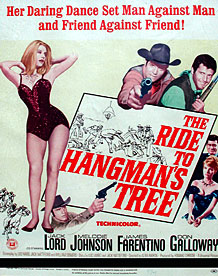I read a best-seller, about a year ago, which I know a lot of people liked. But, unfortunately I just couldn't make myself believe the premise. The back-story about a world-wide cataclysm didn’t cause me any difficulty, nor was I troubled when I found the plot-line to be a sort of inverted Western (in my opinion, at least). My problem was noise.
In the book, the protagonist is making his way across an inhospitable, and very quiet, countryside. He carries his belongings in a metal shopping cart, which he pushes down the road as he walks. Sadly, humanity has largely been reduced to practicing cannibalism, in this novel, so there really are people out to get him. Well, in this case, I suppose they’re actually out to
eat him.
What did I
not find believable about this scenario?
The shopping cart.
I live about a block from a supermarket. And, I can hear those shopping carts quite clearly, when folks push them out to their cars. Sometimes it’s the
squeak, squeak of the little wheels. But, more often, it’s that constant metallic rattle of the cart cage (I guess you’d call it that; the metal cage basket you put the groceries into.). I can hear that rattle a block from the store, even over the thrum of traffic on a major street that runs about four houses away from mine — particularly in the evening, when traffic dies down a bit but the store is still open.
I just couldn’t make myself believe that anybody pushing a shopping cart through a land of cannibals would make it farther than a mile or two, before being caught and cooked.
I mean: Assume you’re a hungry cannibal of the near-future, and you hear the rattle of a shopping cart in the distance. The sound harkens back to the supermarkets you used to shop in, and you shake your head in sorrow because they’ve all been raided, their shelves now barren. Along with those memories come increased hunger pangs. And then you realize: “Wait a minute! Shopping carts don’t move on their own. There’s a person pushing that cart!” And, off you go on a hunger-induced cannibalistic manhunt.
To my way of thinking, the guy with the shopping cart might as well be ringing a dinner bell.
The Problem is Noise
Unfortunately, I all too often run across a similar problem in mysteries. I’ll read a terrific book, or watch a great movie, fully engrossed by the protagonists' struggle to find a way out of their predicament. At some point, they’ll try to turn the tables on their adversary, sneaking up on (or ambushing) him/her/them. And then … in the midst of this Sneaky Pete activity, they start talking, or cracking jokes. Or, they start doing something else that makes a lot of noise. And my suspension of disbelief comes crashing down.
Thus, in the interests of literary noise suppression — and following in the wake of a recent spate of lists here on SS — I present my own list. It’s short, and not nearly conclusive. And, some of the items on it may seem obvious, but perhaps some people haven’t thought about some of them.
Things that make noise, when you want to be quiet:
1. Car Keys Keys jingle. They can be heard at least twenty or thirty feet away on a dark night. Before sneaking up on the bad guys, keys should be taken out and left behind, or taped together so they can’t jingle. I used to keep my footlocker keys on my dog tags, which hung around my neck on a GI necklace, but I taped everything together whenever I went into the field. Otherwise, I jingle-jangled when I walked.
2. Talking I’ve patrolled through jungles, forests, swamps and deserts with eleven other guys. We seldom spoke, usually relying on hand & arm signals. When speaking was absolutely necessary, we whispered — usually with one man putting his mouth up against the other’s ear. This sort of whisper can’t be heard beyond a foot or two. A group of people laughing and joking as they walk up on the bad guy’s lair, is not going to achieve surprise. Or anything else they want. Unless the bad guys are deaf.
3. A Canteen A full canteen or water bottle usually isn’t much problem, as long as it’s tied down so that it doesn’t flop around. A partially-full canteen makes a lot of noise when a person moves, because the water sloshes around and splashes inside it. One of those round canteens that people sling around their necks or shoulders can be really loud — especially when it’s half-full and the person wearing it is moving quickly. That round canteen will beat against the body, and the water inside will bang around; the result is similar to the beating of a drum.
4. Footsteps Most authors seem well aware of the noise a snapping twig makes. But flat-bottomed shoes “slap” against pavement. Rubber soled shoes squeak on flat surfaces such as wood or concrete, particularly when someone pivots in-place. Sand or gravel will groan when a foot pivots on it. Thus, it’s usually best to lift one foot when turning the body, then lift and reposition the other foot. Practice walking on quiet nights, and you’ll probably find that the best method to keep noise down, is to place the foot tenderly toes-first on the ground, then “roll” the rest of the foot down. A person can actually walk quite quietly over ground with many sticks and dry leaves, if care is taken in this manner. Particularly in the beginning, silence will be increased as walking speed decreases, giving the stealthy person time to tentatively quest with the toes and seek a firm, relatively noise-free footing on each step.
5. Branches Pulling two branches apart to look through, seems to be a time-honored activity in some mysteries. So, I’m not about to suggest that a character shouldn’t do this. However, I’d like to suggest that this character maintain
constant control of those branches, hanging onto them until they’re back in their original starting places, when s/he backs out of the overwatch position. Manhandling those branches back into place will keep them from snapping back with whiplash force, which can create a loud
clack-clack sound that can be heard at some distance. Additionally, smaller branches and leaves, on the branch a person tries to move, are often entwined with other branches and leaves. Consequently, my experience at moving branches, is that — all too often — I wind up making a nearby bush dance a noisy Hula. The suggestion? Move branches sparingly. And slowly, while maintaining constant control.
6. Clothing Ever been annoyed by the
whip-whup sound of your pant legs, as the fabric whines against itself when you walk? That noise can be pretty loud on a quiet night, but a character can address it easily with duct tape. Two wraps of duct tape around each thigh, and around each calf, will usually hold the material tight enough against the body to eliminate this problem. (That’s “two wraps”, because of the Duct Tape Rule:
Duct Tape Sticks to ITSELF!! Two wraps ensure it’s sticking to itself, not just to your character's pants.) Anything on the body that dangles needs to be removed or taped down. (Can't wait to see Velma's comment about that one!) Dangling earrings can go into pockets. A necklace can be taped, the way I used to tape my dog tags. A purse should be hand-carried, with constant control over any straps. Shoe laces should be tied tight, and any excess should be tucked into the tops of shoes or boots.
7. Hair One of my daughter’s teachers had long hair in sort of Corn Rows, with beads on the end of each row. It looked very pretty, but when she turned her head, all the beads clacked against each other. That’s not a problem under most circumstances, but when trying to sneak up on the bad guys, a character with hair beads should probably clump his/her beaded hair together, in fist-sized clumps, well apart, then securely fasten each clump with rubber bands. The character may end up looking like a demented porky pine, but at least he can turn his head without waking the dead — or the bad guys.
8. Gum Many people enjoy chewing bubble gum, and popping the bubbles. However, it seems to me that bubble popping is often a nervous habit. And, little can be more nerve-wracking than the final moments before confronting an adversary. If the nervous gum chewer forgets … . Well, one POP! and the element of surprise is forever lost. At which point, huffing and puffing lungs -- in the terror of running for one’s life -- may rebel at the idea of trying to breath in bubble gum.
9. Snapping Yes, I’ve occasionally snapped my fingers to get the attention of one of the other guys on my patrol. Yes, stealthy people in movies do it all the time. But . . . the bad guys can hear it too. And, unless they’re stupid, they know what it means.
10. PLEASE . . . don’t let your characters push shopping carts when they’re trying to be stealthy.
I invite you to add to this list in the comments section if you wish. And, as usual, all remarks will be welcomed.
Smart-a** remarks will be
warmly welcomed!
See you in two weeks,
Dixon
 A final note: When I first met Melodie face-to-face in Baltimore a few years ago, I was not at all surprised to find that she's just as impressive in person as she is on the page and screen. Seriously.
A final note: When I first met Melodie face-to-face in Baltimore a few years ago, I was not at all surprised to find that she's just as impressive in person as she is on the page and screen. Seriously.























